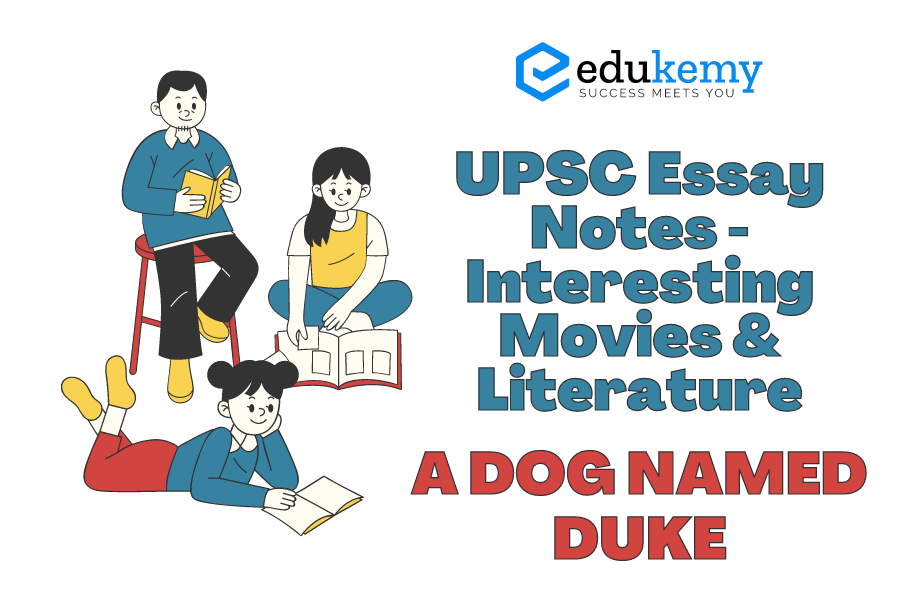
In the realm of literature and cinema, narratives often serve as mirrors reflecting the intricacies of human existence. Among the myriad tales that captivate minds and hearts, “A Dog Named Duke” stands as a poignant testament to the enduring bond between humans and their four-legged companions. Written by William D. Ellis, this heartwarming novel transcends its status as mere entertainment, offering profound insights into loyalty, love, and the essence of companionship. As we delve into the world of “A Dog Named Duke,” we are not merely spectators; we become participants in a journey that unfolds the complexities of human emotions through the unwavering devotion of a faithful canine. This essay delves into the remarkable intersection of literature and cinema, exploring the thematic richness of “A Dog Named Duke” and its implications on our understanding of human relationships and the human condition.
It is the epitome of trust, benevolence, and friendship between humans and animals. Chuck Hooper, the protagonist, met with a fatal accident as a result of which one side of his body was paralyzed. It was his pet Dog who helped him stand again on his feet by consistently supporting him for quite a long time. During his recovery, he was given a simple desk job and his role in the sales department was given to someone else. While he took his first step to get up, it was Duke who helped him stand up by standing firmly. Little by little, they broke their own record successively. Then came a time when Chuck decided to go back to the office. Life became normal once again and he was promoted as well. It was a new journey altogether when they shifted to a new house which was bigger and better. The new neighborhood was, however, unaware of the tireless efforts of Chuck and Duke. One night when Chuck hosted a housewarming party, he heard squeaking noise from outside. When he rushed outside, he found Duke lying on the road. That night, Chuck lost an integral part of his family. Duke was no more.
Contents
- 1 Moral
- 2 Frequently Asked Questions (FAQs)
- 2.1 Q1: What is the significance of incorporating movies and literature into UPSC essay notes?
- 2.2 Q2: How can movies contribute to the understanding of essay topics for the UPSC exam?
- 2.3 Q3: What role does literature play in enhancing UPSC essay preparation?
- 2.4 Q4: How can candidates effectively incorporate references to movies and literature in their UPSC essays?
- 2.5 Q5: Can you provide an example of how a movie like “A Dog Named Duke” can be used in UPSC essay writing?
- 3 To get free counseling/support on UPSC preparation from expert mentors please call 9773890604
Moral
- Humans should learn social attentiveness such as empathy and compassion from animals.
Frequently Asked Questions (FAQs)
Q1: What is the significance of incorporating movies and literature into UPSC essay notes?
A1: Integrating movies and literature into UPSC essay notes adds depth and diversity to one’s understanding of various topics. It helps candidates develop a multidimensional perspective, enhances critical thinking skills, and provides real-life examples to illustrate complex concepts.
Q2: How can movies contribute to the understanding of essay topics for the UPSC exam?
A2: Movies offer a visual and narrative medium through which candidates can explore social, political, and cultural issues. They often depict human experiences, historical events, and societal challenges, providing valuable insights and analogies that can enrich essay writing and analysis.
Q3: What role does literature play in enhancing UPSC essay preparation?
A3: Literature provides a rich tapestry of themes, characters, and narratives that reflect the complexities of human life and society. By studying literary works, candidates can gain deeper insights into philosophical ideas, ethical dilemmas, and historical contexts, which can be applied effectively in essay writing.
Q4: How can candidates effectively incorporate references to movies and literature in their UPSC essays?
A4: Candidates can cite relevant movies and literary works to support their arguments, illustrate key points, or provide examples in their essays. By selecting appropriate references and analyzing them critically, candidates demonstrate their interdisciplinary understanding and analytical skills to the examiners.
Q5: Can you provide an example of how a movie like “A Dog Named Duke” can be used in UPSC essay writing?
A5: “A Dog Named Duke” explores themes of loyalty, companionship, and resilience, offering insights into human-animal relationships and the emotional bonds that transcend species. Candidates can use this movie as a metaphor to discuss broader topics such as empathy, community solidarity, or the importance of empathy in society, thereby adding depth and relatability to their essays.
To get free counseling/support on UPSC preparation from expert mentors please call 9773890604
- Join our Main Telegram Channel and access PYQs, Current Affairs and UPSC Guidance for free – Edukemy for IAS
- Learn Economy for free- Economy for UPSC
- Mains Answer Writing Practice-Mains Answer Writing
- For UPSC Prelims Resources, Click here

